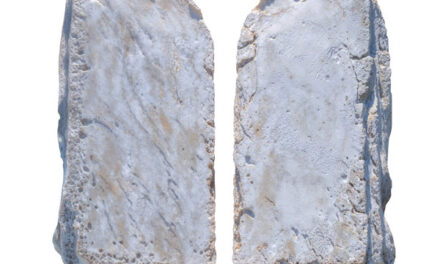Finding Peace
Extreme forgiveness can ease the pain
By Norris Burkes
October 2022
The retired engineer who occupied our ICU bed knew he was dying. He’d known for a long time.
He told his doctor not to take any heroic measures to prolong his life. He only wished to share his last words with his family.
I called his family from the waiting room and assembled them around his bed.
It was a tender moment as he thanked his wife for being such a hero. He thanked her for helping raise their kids and expressed his deep and eternal love for her.

She answered only with streaming tears.
Next, he turned to his son and repeated much the same sentiment. Before I could gauge the son’s response, the doctor summoned the family into a consultation room, along with me and a social worker.
The doctor began by confirming the patient’s wishes.
“He says he doesn’t want to be kept alive with a machine.”
The son spoke for the family with quick certainty. He said, “Good. He deserves nothing.”
A moment later the family dispersed, leaving the doctor to ask her team, “What just happened?”
“Terminate with extreme prejudice,” the social worker replied.
“What?” asked the startled doctor.
I recognized the phrase popularized by the 1979 film “Apocalypse Now” in which an Army special ops captain is ordered to use “extreme prejudice” to kill an errant American colonel. The order allows for an irrational level of violence that gives no chance of survival.
I shook my head at the term’s use here. Was the son only present to make certain his dad died?
I went to find the son, a 30-something man. He sat slumped over in his seat in the nearly empty waiting room, staring at the stained carpet.
As I approached, he removed his hands from his face and gave me a pensive nod to sit beside him.
“Your dad said some nice things,” I said, fishing for answers.
“My dad’s an —” He paused, thinking better. “Sorry, Chaplain, but you know.”
No, I didn’t know.
“Can you say more?” I asked. “I’m OK with the language.”
“Then you’d have liked my dad,” he said. “In between chugging the beer, my father swore nonstop. Dad kept sober work hours, but just long enough to collect his check. He wanted everyone to think that he’s this loving father and husband. No one knew he slapped our mother around.”
“I can see why you’d call him an —”
“Yes!” he said, bleeping my sentence short. “We won’t miss him.”
“You didn’t care for his words today. What would you like to hear him say?” I asked.
“I’d like to hear him say, ‘I’m sorry, son. Forgive me for being such an a-hole!’”
And with that, the man stood and left to rejoin his family.
“See you later,” I told him.
“Later,” he said. Both of us knew that wasn’t true.
Our patient died during the night. Now 10 years later, I’m not able to tell you how the son resolved his feelings.
It’s been said chaplaincy is like pastoring an airport runway because we don’t often see the end of the stories. Sometimes I imagine this ending:
The son would return to our patient’s room in evening light and say to his comatose father, “Dad, you said your piece so now you have to listen to mine.”
He would unload the things he shared with me and then lean close with a whisper,
“I forgive you.”
And because those words often need practice before they become truth, the son would find it redeeming to repeat the same phrase over his father’s grave for several years until he uncovered peace.
I imagine he would have done this not for his dad, but for himself. Because the only resolution to his feelings of “extreme prejudice” would be extreme forgiveness.
Norris Burkes can be reached at comment@thechaplain.net. Follow us on Facebook, Twitter and Instagram: @insidesacramento. Burkes is available for public speaking at civic organizations, places of worship, veterans groups and more. For details and fees, visit thechaplain.net.















